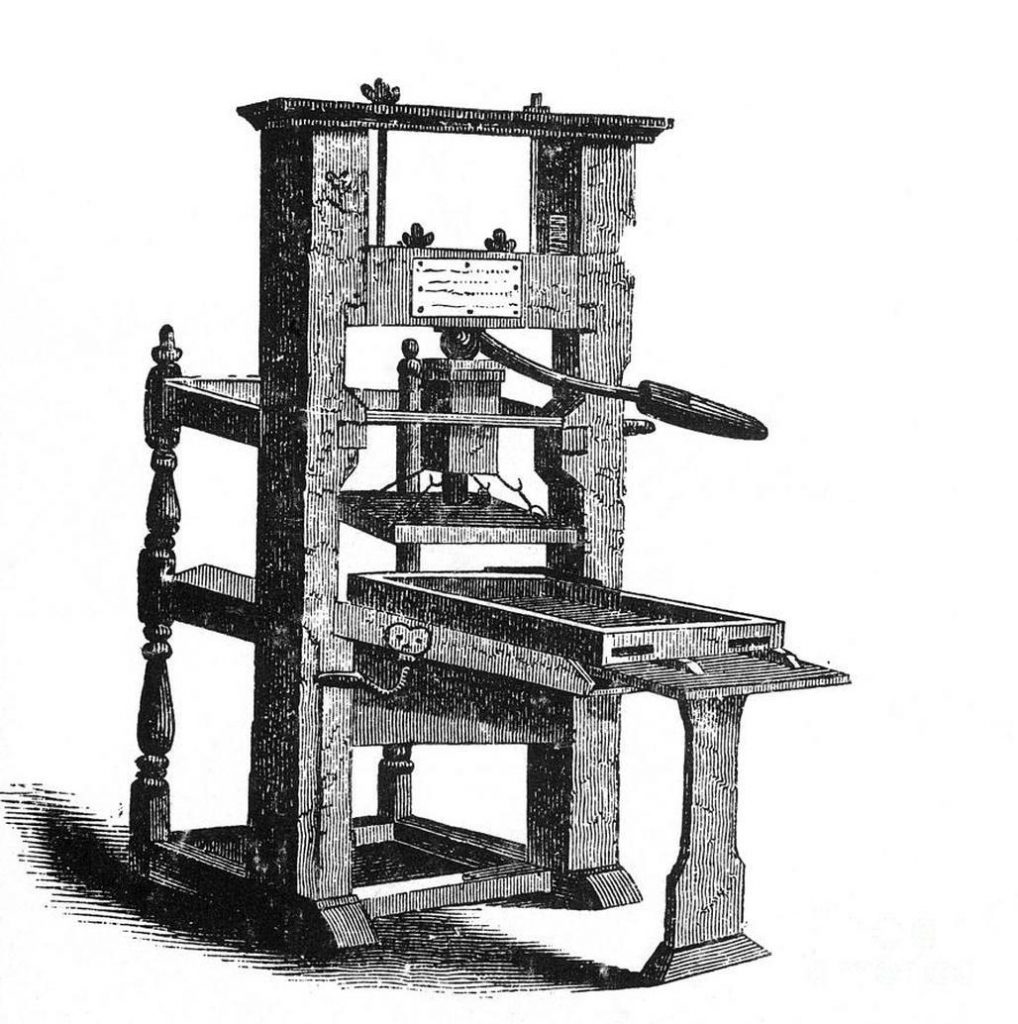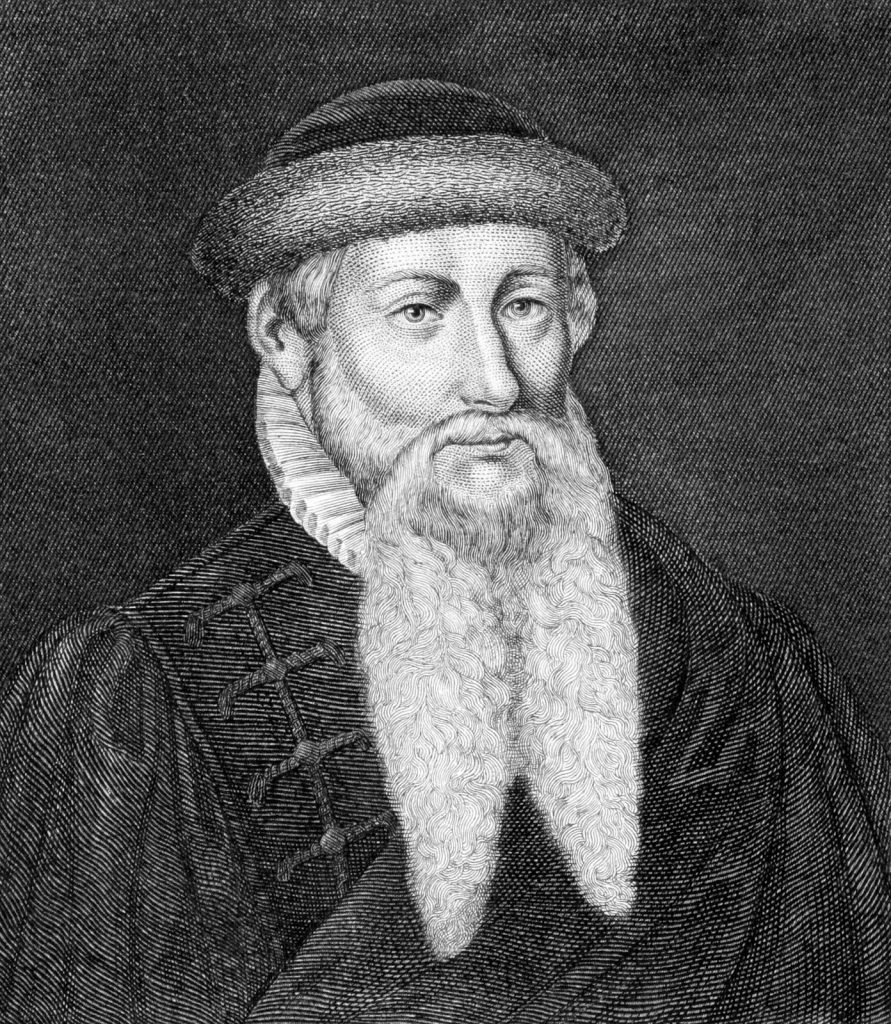In the 15th century, a German Goldsmith Johannes Guttenberg invented the first printing press in Europe. Although wood blocking and moveable metal type were happening far before his time in other nations, his innovation pulled the nation out of the Dark ages, accelerating human progression. This invention started an entire revolution by enabling written knowledge to be rapidly spread across Europe. It is impossible to imagine a world without the printing press; without it, society would not be nearly as advanced as it is in today.

The Creation of the Impossible
Creating such a revolutionary machine was no easy task and took Guttenberg years to make. The Guttenberg Press featured a long handle that turned a large wooden screw that applied pressure on the paper below. The pressure made between the contact with moveable type underneath it resulting in print. This mechanic was such a breakthrough, that when the public heard of the idea they thought it was witchcraft.

An Inventor Not a Businessman
Guttenberg was an astonishing inventor but lacked knowledge of the business aspect of his invention, as well as funding. In 1452, Guttenberg borrowed money from Johannes Fust to continue his work. Together, they printed calendars and other ephemera. Later down in their career, they printed an estimate of 180 copies of the Bible, which was an astonishing feat at the time. These bibles were priceless, unique books that featured gothic type and highlights of color.
Guttenberg and Fust’s relationship did not last despite their breakthrough together. In 1455, Fust turned on Guttenburg ensuing a lawsuit. Guttenberg lost the court case and his equipment was handed to Fust and his partner, Peter Schoffer. Trying to recover from the devastating setbacks, Guttenburg continued his passion for printing until his death in 1468. He created a machine that helped form society yet died without a single penny.

How the Printing Press Changed the World
Unfortunately, Guttenberg didn’t live long enough to see the full impact his invention had on society. After his death, his invention sped up the Renaissance, reinventing the educational system. The power of printing then paved the road for the Scientific Revolution. Libraries and manuscripts would be changed forever with the ability to make carbon copies of knowledge. Before the press, handwritten data of philosophy and science was faulty, often prone to human error. But now they were able to make infinite direct copies giving science a huge leap forward in the 16th and 17th centuries, advancing humanity forward at a speed beyond measures.

https://theselittlewords.com/2018/09/01/hello-september-an-update/
A World Without the Printing Press
It is hard to imagine a world without print when we have grown up with it all our life. We wouldn’t be able to learn about history leisurely, education would be completely different from how we know it, and the advanced civilization we know today would not exist.

Sources:
https://www.britannica.com/biography/Johannes-Gutenberg
https://www.britannica.com/technology/printing-press
https://www.history.com/news/printing-press-renaissance
https://www.history.com/topics/inventions/printing-press
October 19, 2021 at 1:55 am
Good stuff, Caleb. Strong headlines and subheads. Good flow and engaging content. Suggest using Grammarly to improve some awkward phrasing and sentence structure, missing punctuation and capitalization. Little things, but they detract from the storytelling. All told, a strong showing.